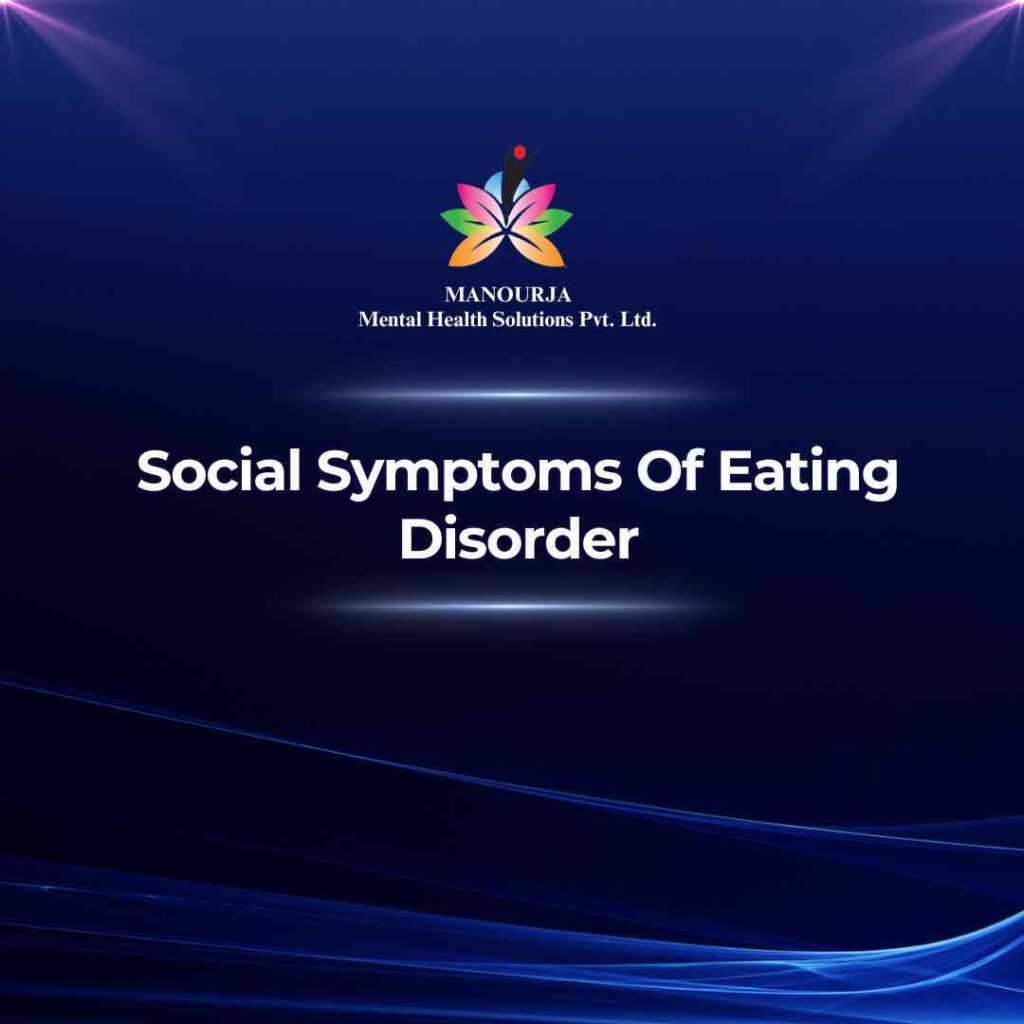Social Symptoms of Eating Disorder

Eating disorders can profoundly affect an individual’s social life, manifesting in behaviors and symptoms that impact relationships and social functioning. Here are key social symptoms associated with eating disorders:
- Withdrawal from Social Activities: Individuals with eating disorders often withdraw from social interactions and activities they previously enjoyed. This might be due to a desire to hide their eating habits or body changes, or because of the fatigue and low energy associated with poor nutrition.
- Avoidance of Food-Centric Events: Social gatherings that involve food can become particularly stressful for those with eating disorders. People may avoid these situations altogether to prevent anxiety about eating in public or to avoid questions about their eating behaviors or dietary choices.
- Strained Family Relationships: Eating disorders can significantly strain family dynamics. Family meals can become battlegrounds, and family members may feel helpless or frustrated about how to help.
- Difficulty Maintaining Relationships: The secretive nature of eating disorders, along with the mood swings, irritability, and withdrawal that often accompany them, can make maintaining friendships and romantic relationships challenging. Trust issues and isolation can further strain these relationships.
- Reduced Academic or Job Performance: Eating disorders can lead to difficulty concentrating and reduced cognitive function due to malnutrition or preoccupation with food and weight concerns. This can affect academic performance in students or productivity and effectiveness in the workplace.
- Social Isolation: As the disorder progresses, the individual’s world may increasingly revolve around their eating disorder, leading to isolation. This isolation can be compounded by depression or anxiety, which are common comorbidities with eating disorders.
- Impaired Social Skills: As eating disorders can develop during adolescence, a critical time for social development, individuals may miss out on or withdraw from experiences that would normally help them develop and refine social skills. This can impact their ability to interact comfortably and effectively with peers.
These social symptoms of eating disorders underline the importance of considering the broader impact of these conditions on an individual’s life, not just the physical health effects. Treatment often requires a holistic approach that includes psychological support, nutritional counseling, and sometimes family therapy to address the complex interplay of factors contributing to the eating disorder.
At MANOURJA, we believe in the transformative power of counseling. Our experienced therapists offer a safe and supportive space where you can explore your thoughts, emotions, and challenges. Through personalized counselling sessions, we’ll work together to develop coping strategies, build resilience, and achieve lasting positive change. Discover the path to a healthier, happier you with MANOURJA counselling services.
MANOURJA Rehabilitation Services
At MANOURJA, we’re dedicated to helping you in rebuild your life, after difficult times. Our rehabilitation services focus on understanding what you need to move forward, whether you’re recovering from addiction, trauma, or any psychological – social challenges. We create personalized plans, that are all about helping you, regain your strength and find hope again. With a caring team by your side, you’ll have the support to make real progress and take steps toward a brighter, healthier future.
